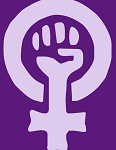The whole speech, as well as Orbach-Smith's introduction to it, which includes some important and interesting back-story on this movement, is absolutely well-worth the read.I imagine a time in the future.
Where the floods of intolerance and homophobia have abated.
We are somewhere over the rainbow.In a time where the laws of
our land reflect a just society.
A society that has put an end to
humiliation and unhappiness.
In this future there are no labels
like gay, straight, bisexual, queer.
You don’t have to “come out” to anyone.
Who you date, who you sleep with, and who you
want to marry doesn’t matter.
No one group is more normal than the next.This reality need not have to be so far off.
After all what is normal anyways?
Typical, regular, ordinary…
Not one of us fits these adjectives.
We are all unique and our sexual identities exist across a spectrum.The passage of laws should not be about making
gay people be like straight people.
Rather, it should be about accepting difference.
When the law understands people for who they are,
people can live as their fullest selves.I imagine liberation as both achieving equal rights
and experiencing the freedom
to assert your own (personal) identity
in the larger society.
It is the sweetness of being able to live without restraint.
For my part, as a bisexual Reform Jew, it was at once heartbreaking and inspiring. I am not very observant, and for me the religion has always been much more about the cultural ties to my heritage and community. It has always been meaningful to me to identify as Jewish, not just because it is proof of survival in the face of near-elimination and widespread virulent hatred, but because I admire and am proud of many of the ideals of Reform Judaism: the focus on giving back to your community in whatever ways you are able, on social justice and civil rights, on acceptance of all no matter our differences - all of this speaks very clearly to who I am and who I wish to be. I may be in a relationship with a man now, but my sexuality still is what it is (which happens to include, besides being bi, also being thoroughly disinterested in being a mother).
So the continued condemnation of queer Jews by some in the Reform branch has always been painful because to me, this is NOT what our religion is about. Sure, I've read those Leviticus passages, but Reform Jews are not fundamentalists. These words were written long ago, and by men, men who were not perfect and men who lived in a time when so little was known about our world and how it works. It always seemed clear to me that the reason for condemning homosexual relations was that the concept of procreation, of planting seed and bearing fruit, was so front and center that any sexual relationship which did not lead to offspring must have been viewed as contrary to the survival of the species. If men lay with men and do not produce heirs, what will happen to us as a people?
Obviously, it was not a threat - in a time of population-overload woes, to worry about not enough babies being born seems silly - but I do not necessarily condemn people back then for thinking as they did, what with the limited scientific knowledge they had. Rather, my disappointment and contempt is saved for those who still share that way of thinking, and who have twisted worries about the multitudes dying out into hatred for anyone or anything that is not completely and blatantly heterosexual. Concern with survival has become disgust toward differences.
My own beliefs, my own vision of God, tell me that perhaps Leviticus and its supporters, both past and present, have it backwards - perhaps, in order to save the planet from collapsing under our too-abundant feet, God purposely wanted some of us to desire non-procreative relationships. Perhaps, to try to make possible a home for everyone, God purposely wanted some of us to take in the unwanted children of others rather than to create our own. Perhaps, to allow some of us (including yours truly) to focus on other ways of giving back, God purposely wanted some of us to be uninterested in exercising our reproductive functions. (Of course, there are those who want to bear children and physically cannot, and my heart goes out to them, though they are generally not heaped with the same scorn as are those of us who can have children and wish not to.) Perhaps gays, lesbians, queers, asexuals, the child-free...perhaps we are not going against one purpose but rather supporting another purpose.
There are many biblical passages that are not adhered to by even the most devout fundamentalist. (Considering all the cotton-poly blends out there, it sure seems like Leviticus 19:19 ain't being heeded very well, for one.) The world changes, people change, societies change...beliefs can also change. Your faith is not invalidated by evolving; rather, it is made stronger by being a living thing, by being able to adapt to the newness around it and not remaining shackled to a time and a world which no longer exists. Reform Judaism is supposed to be about love and justice and a progressive worldview. It cannot be thus and also be exclusionary. To quote Molly Kane, "For we are all one people created betzelem Elohim, in the image of God."



No comments:
Post a Comment